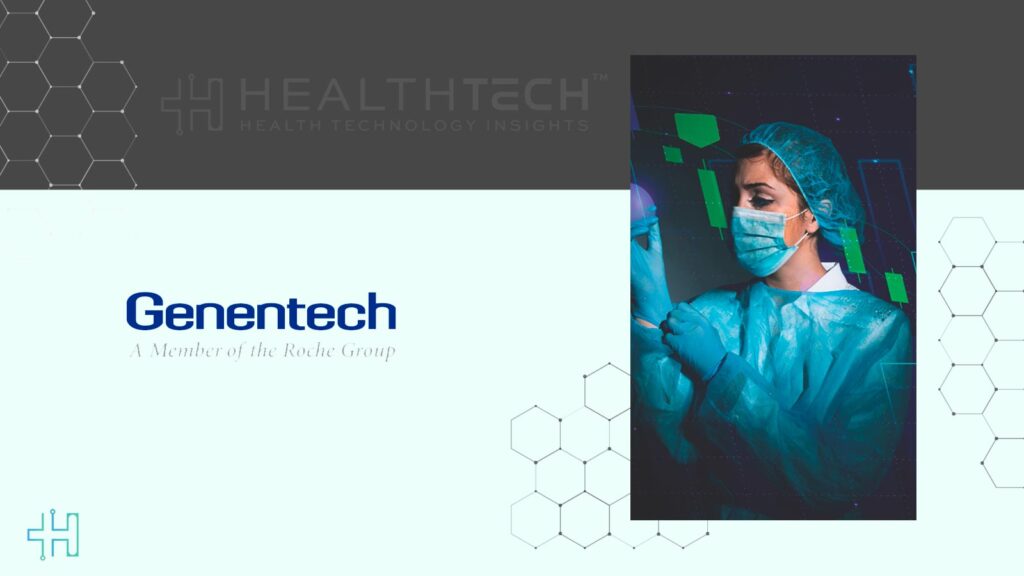Phase III ALLEGORY study met primary and all key secondary endpoints with Gazyva, an anti-CD20 monoclonal antibody designed for enhanced B cell depletion
Genentech, a member of the Roche Group, announced statistically significant and clinically meaningful results from the Phase III ALLEGORY study of Gazyva (obinutuzumab) in adults with systemic lupus erythematosus (SLE) on standard therapy. The study met its primary endpoint showing a higher percentage of people achieved a minimum four-point improvement in SLE Responder Index 4 (SRI-4) at one year (52 weeks) with Gazyva versus standard therapy. SRI is a tool that assesses changes in disease severity, symptoms and physical condition to indicate whether treatment is effective at controlling disease activity. All key secondary endpoints were also met. No new safety signals were identified, and safety was in line with the well-characterized profile of Gazyva.
Health Technology Insights: Digital Initiative Strengthens Access to Mental Health Support
“Systemic lupus erythematosus is a lifelong condition that can cause irreversible damage to the major organs in the body, leading to life-threatening complications. These pivotal results are unprecedented in demonstrating that by effectively controlling disease activity, Gazyva may delay or prevent further organ damage in people with SLE,” said Levi Garraway, M.D., Ph.D., chief medical officer and head of Global Product Development. “We look forward to sharing the data with global health authorities, with the goal of making this potentially transformative new standard of care available as quickly as possible.”
All key secondary endpoints were met, with results showing statistically significant and clinically meaningful benefits with Gazyva versus standard therapy including British Isles Lupus Assessment Group based Composite Lupus Assessment (BICLA) response at week 52, sustained corticosteroid control from week 40 to 52, sustained SRI-4 from week 40 to 52, a six-point improvement in SLE disease activity score (SRI-6) at 52 weeks, and time to first flare over 52 weeks as defined by the British Isles Lupus Assessment Group (BILAG) index.
Health Technology Insights: Inovalon Launches New Tools to Enhance Connected Healthcare
SLE affects over three million people worldwide, mostly women diagnosed between the ages of 15 and 45, with women of color disproportionately impacted. Frequent flares of disease activity inflame and damage multiple organs. Around half of the patients will progress to lupus nephritis, a potentially life-threatening kidney complication, within five years of diagnosis. Achieving better disease control can reduce flares, limit further damage to the organs and lower the risk of developing lupus nephritis.
Data will be presented at an upcoming medical meeting and shared with health authorities as soon as possible, including the U.S. Food and Drug Administration and the European Medicines Agency. If approved, Gazyva would be the first anti-CD20 therapy for SLE to directly target B cells, an underlying cause of disease.
ALLEGORY is the third positive Phase III study for Gazyva in immune-mediated diseases, in addition to REGENCY in lupus nephritis and INShore in idiopathic nephrotic syndrome. This growing evidence suggests that Gazyva, designed to attack and destroy targeted B cells, both directly and together with the body’s immune system, may help address disease activity across a spectrum of autoimmune or immune-related diseases.
In addition to SLE, Gazyva is being investigated in children and adolescents with lupus nephritis, as well as adults with membranous nephropathy, as part of our ambition to be leaders in immune-mediated rheumatology and nephrology diseases.
Health Technology Insights: Ambetter Health Kicks Off Marketplace Open Enrollment
To participate in our interviews, please write to our HealthTech Media Room at info@intentamplify.com
Source- businesswire







